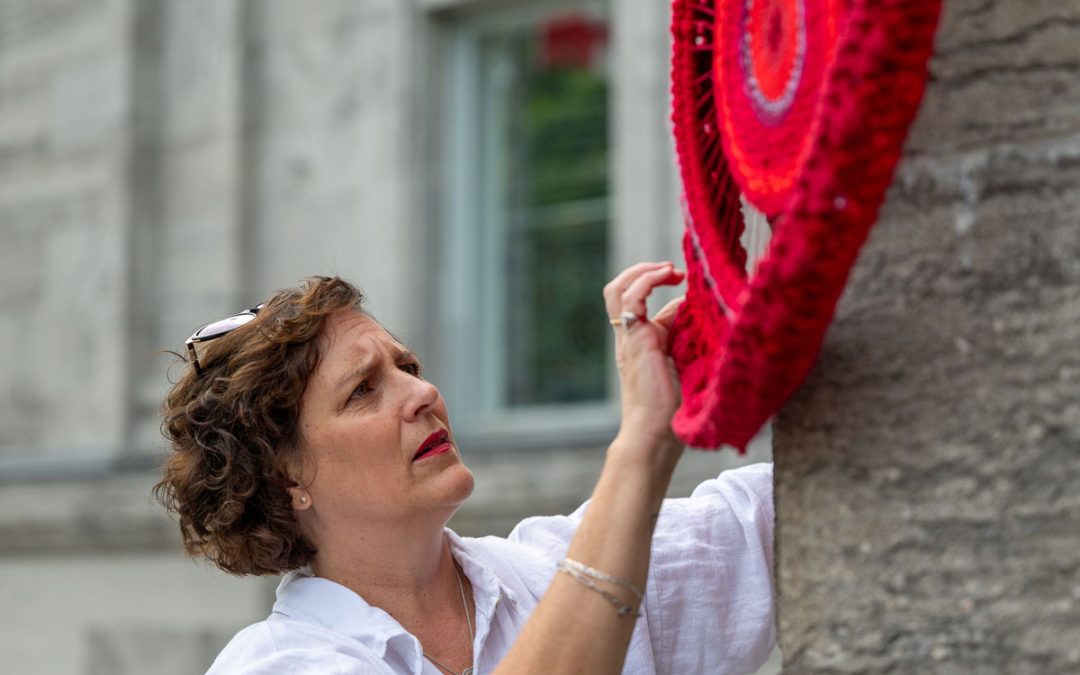About 2 years ago, I published, What should I do on Orange Shirt Day?
At the time, I set out to have a day of study and reflection for Canada’s first Orange Shirt Day.
I decided to visit the research library of my undergraduate days and then meet a fellow GLAM (Gallery, Library, Archive and Museum) worker and good friend after work for a bite to eat.
It was a good way to spend the day, a bit of time on my soul searching and reading and then some time with a good friend to discuss what we observed about Truth and Reconciliation on the first what we believed would be a national holiday and what it might mean in the future years.
September 2023 Orange Shirt Participation & Learning
When I reflect on what I’ve learned over the past month in 2023 and how I will spend tomorrow, I think that some things have changed and that cultural organizations and local communities are still learning and changing.
1. September 9, Mohawk Institute event in St. Catharines
Celebration of Nations presents
The Mohawk Institute: Purpose and Preview of a National Site of Conscience
First Ontario Performing Arts Centre, THE FILM HOUSE
Heather George, Executive Director of the Woodland Cultural Centre co-presented with a team of experts involved with the redevelopment of her site.
There was also a moving story told by a woman who was a survivor of the residential school about what life was like and how traumatizing it has been for her family to pick up the pieces of their lives following this experience.
While there, I reflected on the course that Heather George had co-taught with others on Decolonizing Museums in Practice.
Here, we discussed a reading where Indigenous Peoples were not comfortable with their experiences at a BC Museum and voiced their concerns.
We discussed with our peers a comment made by a museum worker of settler or mixed ancestry who stated that they weren’t comfortable with the discussion.
Our peers discussed if it was necessary to be uncomfortable to learn.
When the presenters described their exhibit plan for the renovations, I felt very uncomfortable and I was wondering if the idea was for non-Indigenous people to feel that way. I feel that this is a delicate thing. I almost wanted some sort of orientation or context piece to soften the stories of the survivors. How do you prepare and recover from these types of experiences in a way that your learning grows and your willingness to look at something in a new light?
2. Work with Wiki Wednesday Indigenous Advisors – better understanding of the Metis experience in Canada
I’ve started to meet with the two Metis artists on the content for the upcoming February 2024 webinar that has been funded by the Canada Council for the Arts and the Wikimedia Foundation.
It was interesting to hear one of the artists mention that he found out that his Grandmother was part of the Chippewa Nation from what is now known as Madeleine Island in Wisconsin only when she passed away and the family started to go through her records. The family found out that the grandmother had said she was French in order to avoid any children being taken to the Residential schools.
3. Lunch and Learn with Woodland Cultural Centre – September 19, Virtual Tour
I thought that Heather George and the Woodland Cultural Centre did a great job of balancing the stories of survivors with a tour of the facility. For some reason, I found this experience less alarming than the talk earlier in the month. Perhaps it was that I had felt uncomfortable enough at the earlier experience, that I was more relaxed to hear the messages from the virtual tour.
4. BC Museums Association digital access to the Conference in Saahlinda Naay Haida Gwaii Museum and the Haida Heritage Centre
I was listening to the speakers chat about the difference between allies and accomplices and it was interesting to reflect on my earlier thoughts.
One of the speakers at the conference was quite vehement that Indigenous Peoples should not be asked about how to be an Ally. She felt that non-Indigenous people of mixed ancestry should do the work themselves through doing Google searches. She indicated that she was not comfortable with the term ally and was more comfortable with the word accomplice.
During the Museum Study course on Decolonizing Museums in Practice, someone had suggested that accomplice was better than ally and I was uncomfortable using the term because of what it means in the legal system and I didn’t like the connection to that meaning of the word. I felt that it would further perpetuate negative words for something that should be positive.
5. Animikii /Tech Soup Event – September 28
Reconciliation and Tech: Amplifying Indigenous Voices Through Ethical Nonprofit Tech Practices
It was fascinating to hear more about their longer-term approaches with their operating teams, as well as their pathfinding process to software and web design with their clients.
6. McMichael Canadian Art Collection – Curatorial Talk on September 30
I am looking forward to attending a talk tomorrow with an Indigenous artist and chief curator Sarah Milroy – On the Land: Indigenous Perspectives on Algonquin Park and Tom Thomson

